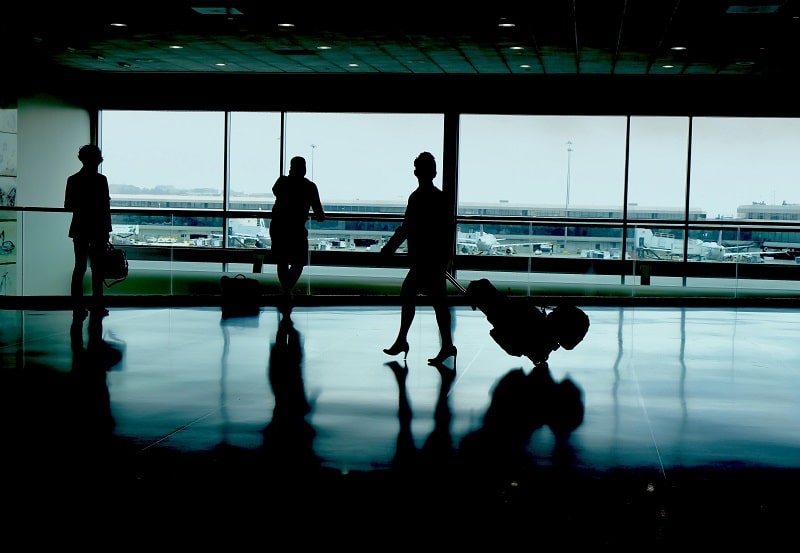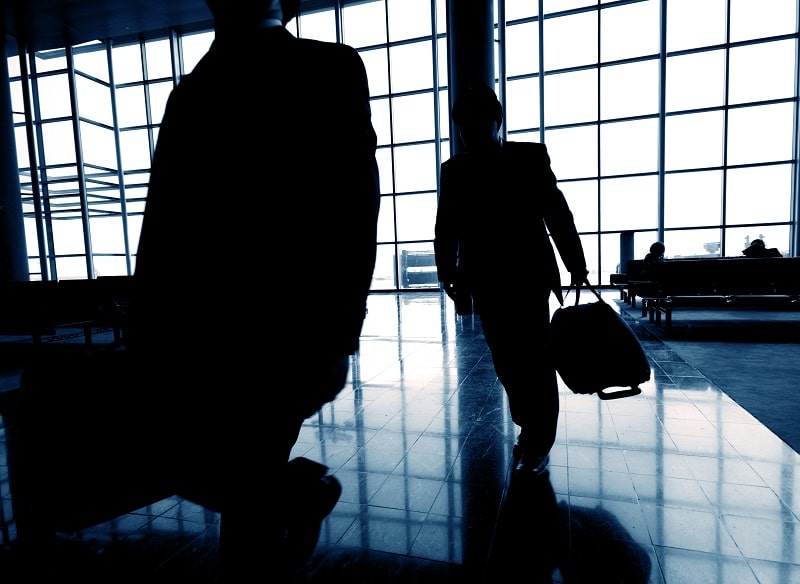No matter what happens with the Covid-19 pandemic, business travel remains a constant. Work has to be done and sometimes the only way to get things moving is to travel abroad. In our digital connected world it is seen as simply possible to get on a plane to anywhere in the world, and simply to pick up work where you left off.
However, it is important to understand that as a business traveller, you open yourself up to a range of potential cybersecurity weaknesses and vulnerabilities. Not only are you in a less familiar environment where it is easier to make a mistake, you may also be missing the kind of cybersecurity measures that you take for granted in your office.
Here we take a look at the ways that business travellers can help to minimise their cybersecurity risk.
Use a VPN

If you are going to be using the internet abroad, it is advisable to make use of a virtual private network (VPN). This is especially true if you know you are going to have to access sensitive company data and private information. A VPN is a method of gaining privacy on a computer by logging into a remote server and accessing the internet through that.
According to Chris Hoffman of How-To Geek: “connect business networks together securely over the internet or allow you to access a business network from home.
VPNs essentially forward all your network traffic to the network, which is where the benefits — like accessing local network resources remotely and bypassing Internet censorship — all come from. Most operating systems have integrated VPN support.”
Don’t automatically trust public Wi-Fi

There can be no doubt that for business travellers, public Wi-Fi can look very tempting. It may be the case that you generally do all of your business over the internet – so going abroad and not having immediate access to the internet at all times can be both disorientating and confusing.
In that scenario, it can be extremely easy to see a public Wi-Fi network available and to simply select it as a quick way to get online. But these unencrypted networks can be very vulnerable to cybercrime.
They may well be a convenient option, but the risks don’t outweigh the benefits. So make sure that you completely understand who is supplying your Wi-Fi, and the security measures that they have put in place.
Enable multi-factor authentication
Multi-factor authentication (MFA) is a form of security that can protect you if a password is stolen or cracked. It is functionally another check with a different set of credentials. For example, you might be asked for a one-time code that is sent to your mobile phone – or you could be asked to answer a previously selected security question.
“Multi-factor authentication provides an important secondary layer of defence in the event of a password being stolen and is especially important given people’s tendency to reuse passwords across accounts,” explains Jed Kafetz, Head of Penetration Testing at cybersecurity specialists Redscan “if adopted more widely, I can confidently say that there would be far fewer security breaches.”
Use stronger passwords

It is a very good idea to consider your passwords for accounts before you travel. It should always be the case that you use unique passwords for every account and have them as strong as possible. And yet, despite this being well-known best practice, it is also well understood that many people don’t follow it.
Of course, many people are not ‘punished’ for lower quality passwords because they are surrounded by powerful cybersecurity measures. This is especially true in a work environment where systems like the company firewall and antivirus are in place to minimise risk. However, when travelling, these defences are not always in place.
It is sensible then, to upgrade to stronger passwords before you go abroad. Google recommends making your password is: unique, at least 12 characters, avoids personal information, and doesn’t use common words or patterns.
Lock your device
A common mistake that business travellers make is keeping the same low level security settings on their devices from when they work at home. It is clearly convenient not to have to enter a password every time you open up a device. But in terms of travelling abroad, this is an important security step.
If you don’t lock your devices anyone who gets hold of them can potentially get access to information and data without even having to enter a password.
Install antivirus software

Do you currently use antivirus software on your work devices? Many people will invest in an antivirus solution for their laptop or main computer – but they may well forget to do the same for other devices that are also being used to access company data. This means that you could be making it easy for hackers and cybercriminals to intercept valuable information.
It is a great idea to invest in powerful antivirus software on all of your devices before you travel to ensure that you are as protected as possible. There are, of course, many different types of antivirus software available. It is worth researching which one might be right for your specific needs and those of your business.
Be aware
It is perhaps understated just how important it is for business travellers to be made aware of the dangers they are facing. It is a good idea to invest in training to establish where the greatest risks come from.
It’s a good idea to talk to your business about the kind of cybersecurity training that they offer. Having training that is regularly updated and provides details on how to avoid the latest threats is key.
Business travellers need to be aware that they are targets for cybercriminals. Being in an unfamiliar environment can lead travellers to make mistakes or take for granted certain security measures that they rely on at home. The more you can do to keep yourself protected, the better position you will be in – for both you and your company’s sake.














